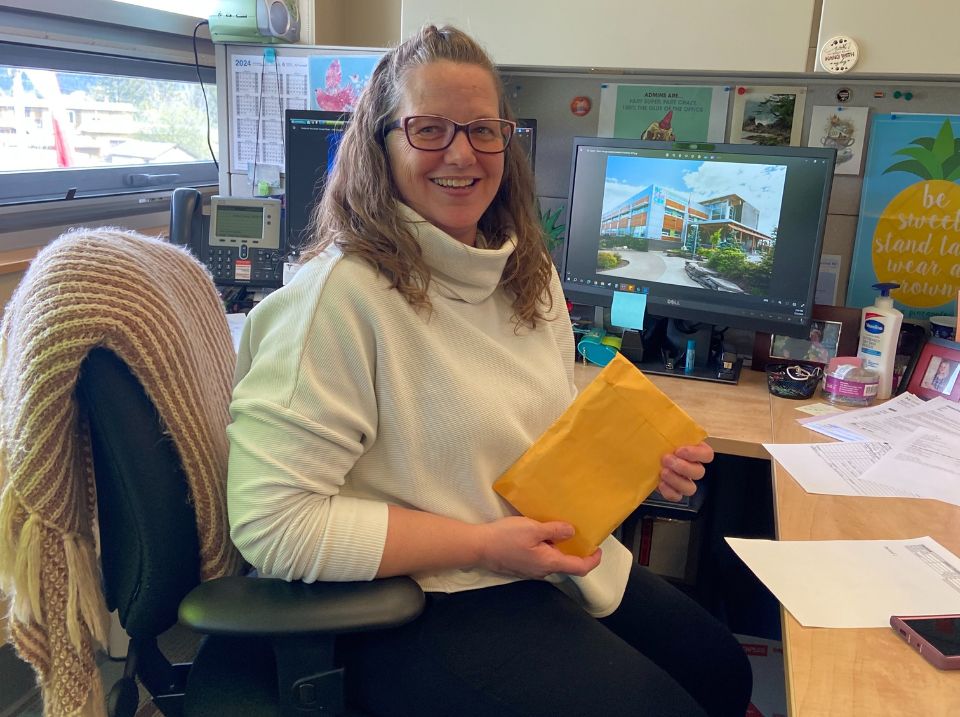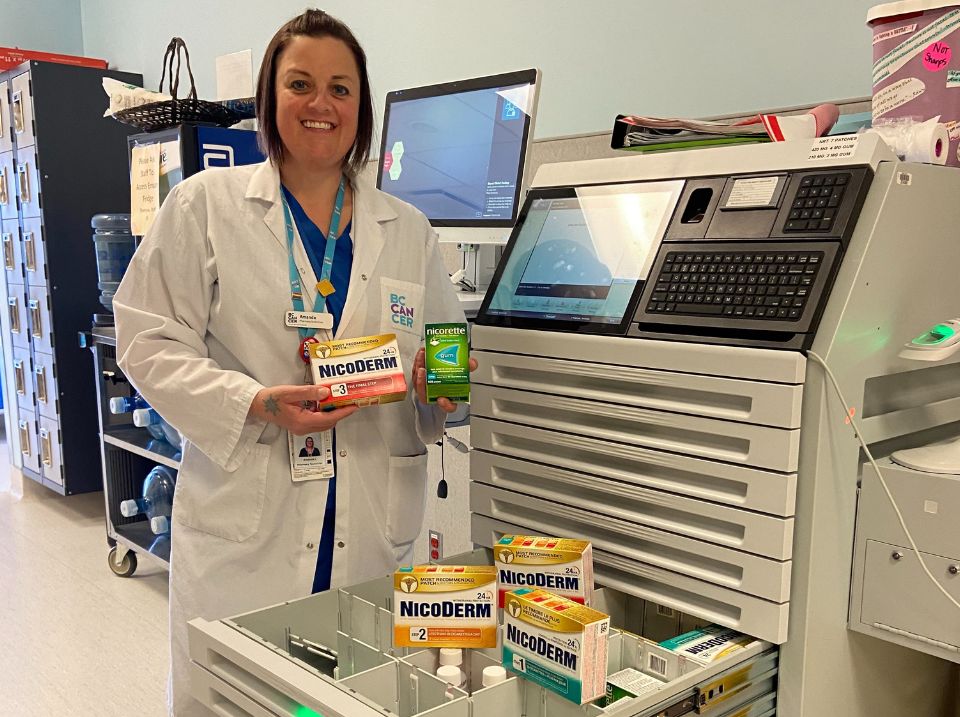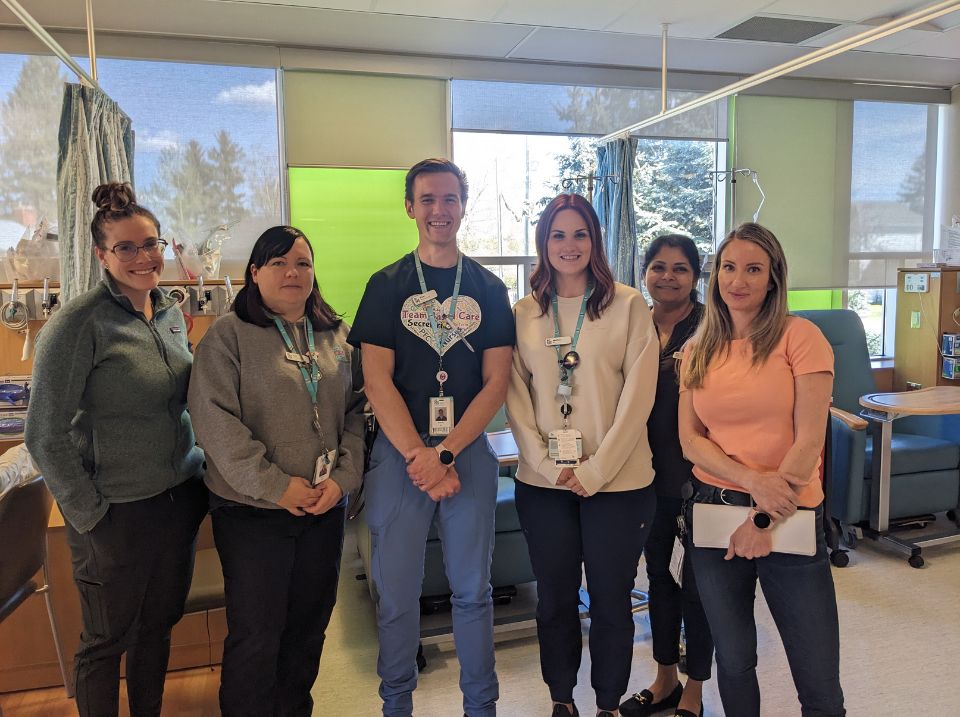In October 2023, BC Cancer launched a Nicotine Replacement Therapy (NRT) pilot program in Prince George to assist patients in quitting smoking during cancer treatment. The pilot program, which was designed to reduce barriers unique to patients living in remote and rural communities, such as access to pharmacies, provides patients with essential support to quit smoking. In recognition of World No Tobacco Day (WNTD), the teams leading this pilot program shared their insights on its successes to date.
Since its launch, the NRT pilot program has seen 27 participants between October 2023 and April 2024, with significant engagement in follow-up support systems. Out of these participants, 20 have been referred to Quitlines for further assistance: 14 to QuitNow and six to Talk Tobacco, a culturally tailored service for Indigenous patients. The program also involves the centre's Indigenous Patient Navigator, Jalissa Brent, to support the team in delivering comprehensive and culturally safe support.
Immediate availability of NRT at the point of care can significantly enhance a patient's ability to quit smoking. As part of this pilot program, nurses provide a one-week supply of NRT patches and gum during the first clinic visit, and remote patients receive their supplies via courier, ensuring no one is left without support due to geographic limitations. So far, packages have been sent over a total distance of 4,000 kilometers to reach remote patients.

Teresea Todoruk, administrative assistant at BC Cancer – Prince George, who manages the logistics of sending NRT to remote patients.
"Building upon the BC Cancer Smoking Cessation program to incorporate point of care Nicotine Replacement Therapy is a key example of innovation that supports improved patient outcomes," said Megan Crosby, senior practice leader, Nursing at BC Cancer – Prince George. "The opportunity to develop this project has been incredibly rewarding and I am proud to say that we are offering this novel approach to smoking cessation at BC Cancer."
The program's successes to date are attributed to the dedicated efforts of a collaborative team. Crosby has been instrumental in helping to ensure the success of the program and has helped to implement NIA tools, remote patient mailing and more. She also acknowledges the significant contributions from pharmacy, clinical informatics, and administrative colleagues in creating a decision support tool that enables nurses to assess tobacco dependence, order appropriate NRT, and dispense it to patients.

Amanda L'Heureux, pharmacy technician at BC Cancer – Prince George, who facilitated the integration of NRT into Omnicell drawers.
Key contributors include Amanda L'Heureux, pharmacy technician, who facilitated the integration of NRT into Omnicell drawers; Teresea Toroduk, administrative assistant, who manages the logistics of sending NRT to remote patients; and Jalissa Brent, Indigenous Patient Navigator, who supports referrals for Indigenous patients. Brittany Freeman, clinical nurse educator, has also been instrumental in providing education to nursing staff including workflows, remote patient NRT delivery and day to day operations; and Alison Pow, professional practice lead, Pharmacy, contributed significantly in the program's implementation.

Pictured from left to right: Jalissa Brent, Indigenous Patient Navigator; Brittany Freeman, clinical nurse educator; and Megan Crosby, senior practice leader, Nursing at BC Cancer – Prince George.
Looking ahead, BC Cancer plans to expand the NRT program to other centers, based on collected data and feedback from staff and patients. This gradual expansion aims to ensure the program's success while maintaining its effectiveness. Ongoing collaborations with the Indigenous Patient Navigator and other stakeholders are set to enhance the program further, ensuring it meets the diverse needs of all patients.
The NRT pilot program's early successes and the committed teamwork behind it underscore BC Cancer's dedication to improving patient outcomes and supporting smoking cessation as a critical component of cancer treatment. As the program evolves, it holds promise for broader implementation and greater impact across the province.
"The initiation of the NRT program has given nurses a tool to help improve the outcome of cancer treatment. It has also given patients the benefit of being able to leave our building with nicotine replacement in hand," said Megan Boudreau, registered nurse at BC Cancer – Prince George. "With some time, I can see this program really making a difference at BC Cancer."

Pictured from left to right: Vanessa New, registered nurse from Haida Gwaii, completing a systemic therapy practicum in Prince George; Tish Trevelyan, licensed nurse practitioner, Team-Based Care; River Goerz, registered nurse, Team-Based Care; Melissa Foisy, registered nurse, Systemic Therapy; Felci Vedulla, clinical nurse leader, Ambulatory Care Unit; and Brighdie Davey, clinical nurse leader, Systemic Therapy. They are part of the nursing staff who have been implementing the NRT pilot program at BC Cancer – Prince George.
World No Tobacco Day (WNTD) is observed around the world every year on May 31, informing the public on the dangers of using tobacco. WNTD was created by the Member States of the World Health Organization (WHO) in 1987 to draw global attention to the tobacco epidemic and the preventable death and disease it causes.
